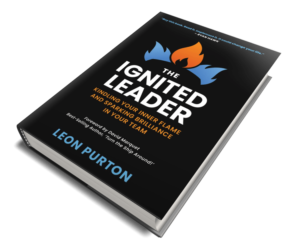
Most people never run far enough on their first wind to find out they’ve got a second. Give your dreams all you’ve got and you’ll be amazed at the energy that comes out of you — William Jones (1842–1910)
Dreams are often those day time thoughts you have on your unspoken desires. Or more scientifically, the transition from the deepest stage of sleep to the lightest as your brain creates stories to process your emotions.
However, Robert Goffee and Gareth Jones in their book “Why should anyone work here?” use DREAMS as a mnemonic for the summary of their study into the ideal workplace. What would your ideal workplace offer?
DREAMS
Difference — A workplace that attracts and celebrates people’s differences, which allows them to bring their whole selves to work. This is different to Diversity, which focuses on external difference. For me, difference is more Cognitive Diversity; difference of perspective, thought patterns, experiences, attitudes, beliefs, upbringing, educations, etc.
Radical Honesty – You may think that keeping some information from people is better, and there are occasions in our work where confidentiality is required. But if you can, let your team know everything as you know it. Proactively and candidly share information and you can create a trust. You will have informed staff and an engaged workforce. In a world where we are worried about making sure the right message is communicated, we create room for rumours and mis-truths. “You need to tell the truth before someone else does”. We need to encourage ‘upwards’ radical honesty. There is also an importance for feedback, remembering that we need to ensure we are conscious about providing and welcoming constructive criticism, but always calling out bullying or demeaning behaviour.
Extra Value — Provide opportunities for personal development. Allow people to add to their strengths and grow. Look for opportunities to challenge your team outside of their work title. Look for professional growth options and short-term secondments. Look to pair people with the jobs that suit them, those that magnify their strengths and challenge them to grow.
Authenticity — I’ve spoken about this before. This is about bringing that one version of you, not projecting what you think people need. Lean into your core values and make sure those around you are aware of what you stand for, what makes you happy and what makes you proud. Great workplaces encourage this… no, expect it.
Meaningful Work — This is work that they see the connection to why and how it achieves their long-term goals; how it matters. The work may be framed in a way that aligns with their motivations and goals, or to their values. On a larger scale, the rest of the workplace community can also see how their work connects to that of the others around them. How they are all working towards those mutually understood goals.
Simple Rules — Goffee and Jones define that people want sensible and enabling rules, not confusing or over-complicated rules. This leads to a greater level of trust in an organisation. To create this, rules should be fair, clear, workable and widely agreed on. The motivation for the rules that are required should be well understood. In a high-trust organisation the need for complicated rules decreases.
What would you request?
If you were to discuss with your peers and colleagues what you need from the ideal workplace, what would you request? In my experience, people don’t really want easy work, they want work that challenges them, but it has to matter. I resonate with authenticity and efficiency (no stupid rules). But what environment would you create if you were in charge? What changes would you make?
Stay safe and keep smiling,
Leon
